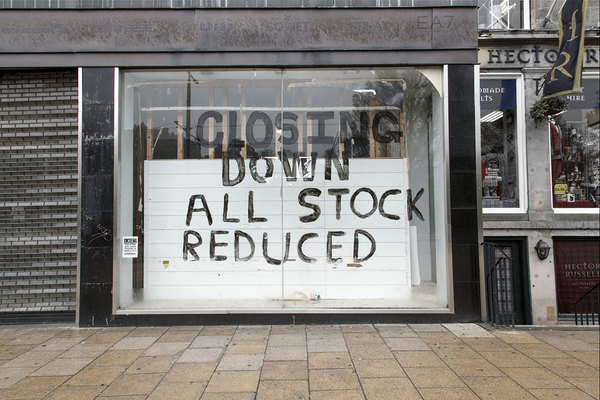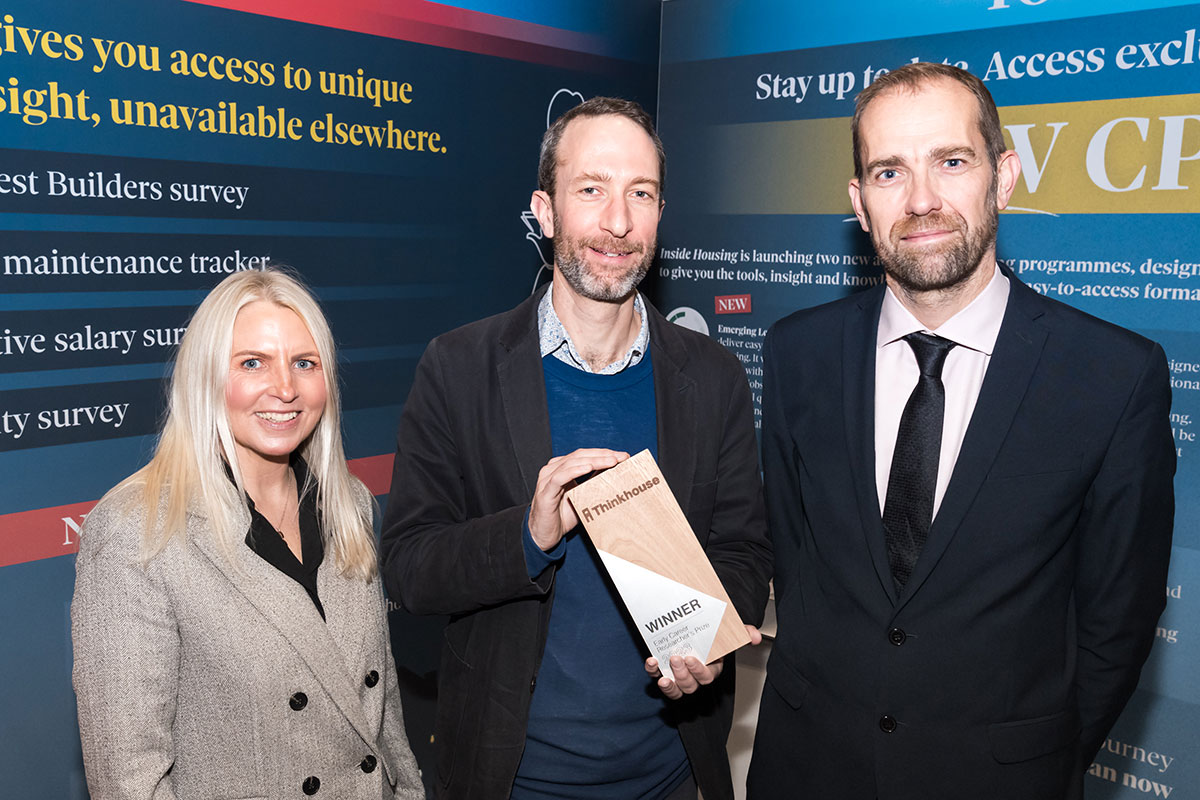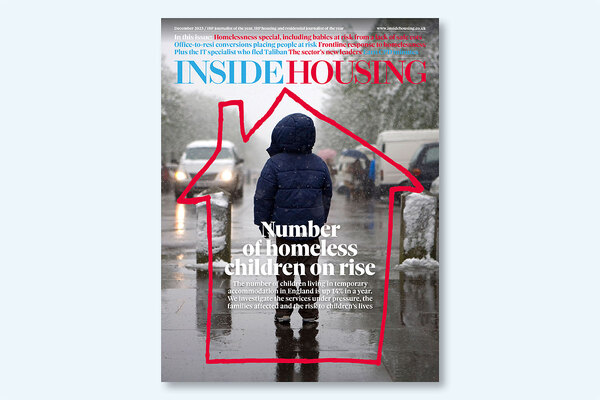You are viewing 1 of your 1 free articles
The Thinkhouse review of housing research: June
The Thinkhouse review of June’s housing research by Richard Hyde focuses on publications by the Royal Town Planning Institute (RTPI) and Policy Exchange
Thinkhouse has now been running for over a year and our weekly trawl for new UK and international work is increasingly being supplemented by more and more researchers, thinktanks and academics alerting us to their publications.
This means that our editorial panel is seeing a good number of new reports each month. We still aim to select only about a dozen each year to showcase and will be looking for reports which are most likely to influence and inspire policymakers through detailed analysis and explanation, all underpinned by excellent research.
A couple of the reports that have gone onto the site in the last month have a focus on more effective land use and in particular the promotion of mixed-use sites – residential alongside employment and retail.
Given the importance of land in the housebuilding equation, I would recommend that readers have a look at Better Brownfield from Policy Exchange and RTPI’s Settlement Patterns, urban form and sustainability.
Starting with the RTPI report. This is an extremely well-researched macro view of the impact that settlement patterns have on economic productivity, climate change, health and an ageing population.
The RTPI commissioned extensive research to gain a better understanding of urban form in 12 English cities and mapped planning permissions for more than 226,000 new homes granted between 2012/17.
This is no small task, and resulted in an analysis that could measure the relationship to existing built up areas, employment clusters and transport nodes. This was then used to understand how these patterns of growth impacted on the sustainability of these city regions in relation to the challenges noted above.
“Despite the breadth and depth of the analysis I was left waiting for the killer stat, or breakthrough idea that would stir policymakers.”
The importance of mixed-use sites close to transport hubs is strongly supported by the evidence.
As a result this piece of work explains the impact that planning can have in helping to manage these issues.
The report also includes an excellent insight into green belt policy.
But… despite the breadth and depth of the analysis I was left waiting for the killer stat, or breakthrough idea that would stir policy makers.
This is not really a criticism of this excellent report, but I know from reading the many reports that we see at Thinkhouse that grabbing the attention of the reader (who may, like me when busy, have the attention span of a gnat) is a task the authors should not underestimate – which brings me to the Policy Exchange report.
The report is much weaker than the RTPI report on its research but captured my imagination with its focus on turning urban big-box retail sites into mixed-use communities.
The report is written to influence the mayor of London’s housing plan, which has set a target of 650,000 houses over ten years – 66,000 houses per annum – but is equally applicable to any urban and semi-urban area which has warehouse retail or logistics operations.
Actually, it took me a bit of time to warm to the Policy Exchange report.
I appreciated the well-argued explanation of the sustainability of inner-city mixed-use sites but I felt that underpinning it with a desktop study that used Openstreetmap to provide an estimate of 1,200 relevant sites covering 6,000 hectares was a pretty broad brush.
The proposition that these sites could accommodate 250,000-300,000 new homes alongside the existing commercial activity, worried me.
At this point I should declare an interest, as I run a sales and distribution business that needs its three warehouses to meet our customers next day delivery demands.
Yes our sites could be bulldozed and houses put on them but what will my team and I do then? Maybe our customers will miss us? Putting viable companies out of business hardly seems a practical policy idea.
However, I think the report – eventually – recognises this and the focus shifted to highlighting the changing face of retail.
We have seen many of our out of town and edge of town warehouse retail shops close – Toys R’Us etc – as the pure internet and click, and brick retailers change shopping habits.
Almost every town must have empty big-box retail sites looking sad and weed infested.
I know my area does, and I also know the local council says it does not have space to build new homes.
“Almost every town must have empty big-box retail sites looking sad and weed-infested.”
Well maybe they do if they read the report, and I for one will be evangelising about the opportunity that this simple idea, put forward by Policy Exchange, offers. Almost all the empty warehouse retail stores in my locality are next to or close by existing residential areas. Many are not far from transport hubs.
Councils, housing associations and developers need to analyse the options and possible housing gain and how such development could be funded and delivered.
The retail world has changed and those interested in providing more homes in sustainable areas need to recognise this and take advantage of it. Thank you Policy Exchange!
Richard Hyde, editorial panel chair and founder, Thinkhouse
What is Thinkhouse?
Thinkhouse was formally launched in spring 2018, and aims to “provide a single location and summary of the best and most innovative research pieces, policy publications and case studies”.
It specifically looks at reports that propose ways to boost the amount and quality of housing and the economic, social and community issues of not doing this.
The Thinkhouse editorial panel highlights the ‘must-read’ reports, blogs about them and runs the annual Early Career Researcher’s Prize.
The panel includes current and former housing association chief executives, academics, lawyers, economists and consultants. It is chaired by Richard Hyde, chief executive of a business that sells construction hand tools.
Who is on the panel?
Richard Hyde | Chair of Editorial Panel, CEO of HYDE |
Gemma Duggan | Head of Compliance and Performance at Extracare |
Chris Walker | Economist |
Brendan Sarsfield | CEO, Peabody |
Mick Laverty | CEO, Extracare Charitable Trust |
Martin Wheatley | Senior Fellow, Institute for Government, |
Kerri Farnsworth | Founder & MD, Kerri Farnsworth Associates |
Suzanne Benson | Head of Real Estate for the Manchester office of Trowers. |
Burcu Borysik | Policy Manager at Revolving Doors Agency, |
Ken Gibb | Professor in housing economics at the University of Glasgow, Director of CaCHE |
Peter Williams | Departmental Fellow, Department of Land Economy, University of Cambridge |
Brian Robson | Executive Director of Policy and Public Affairs at the Northern Housing Consortium |
Francesca Albanese | Head of Research and Evaluation at Crisis |
Jules Birch | Journalist and blogger |
Susan Emmett | Head of Engagement for Homes England |
Mark Farmer | Founder and CEO Cast Consultancy |
Steve Moseley | Group Director of Governance, Strategy & Communications at L&Q |
Jennifer Rolison | Head of marketing at Aquila Services Group |
Philip Brown | Professor of Housing and Communities at the University of Huddersfield |
Anya Martin | Senior researcher at the National Housing Federation |
Emily Pumford | Policy & strategy advisor, Riverside |
Anthony Breach | Analyst, Centre for Cities |
Shahina Begum | Customer Insight Office, Peabody |












